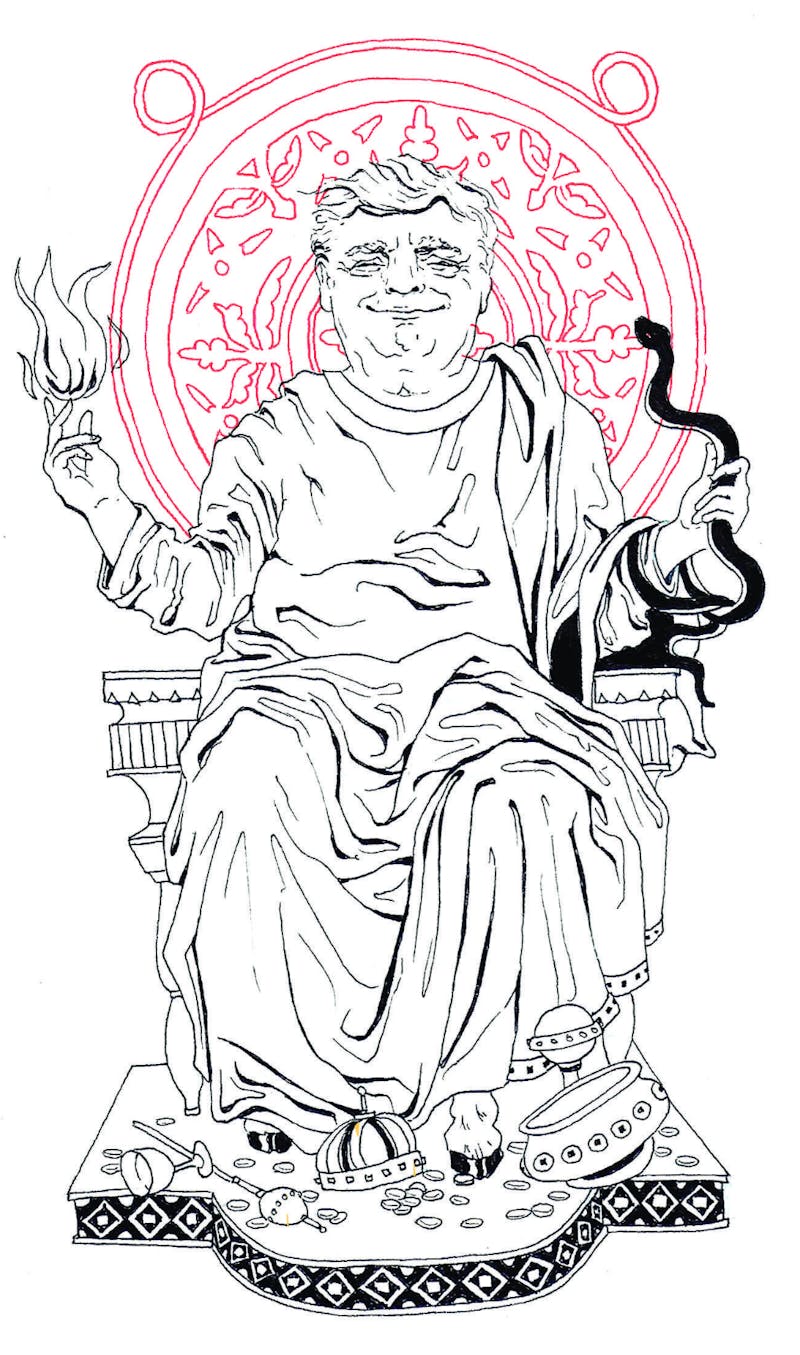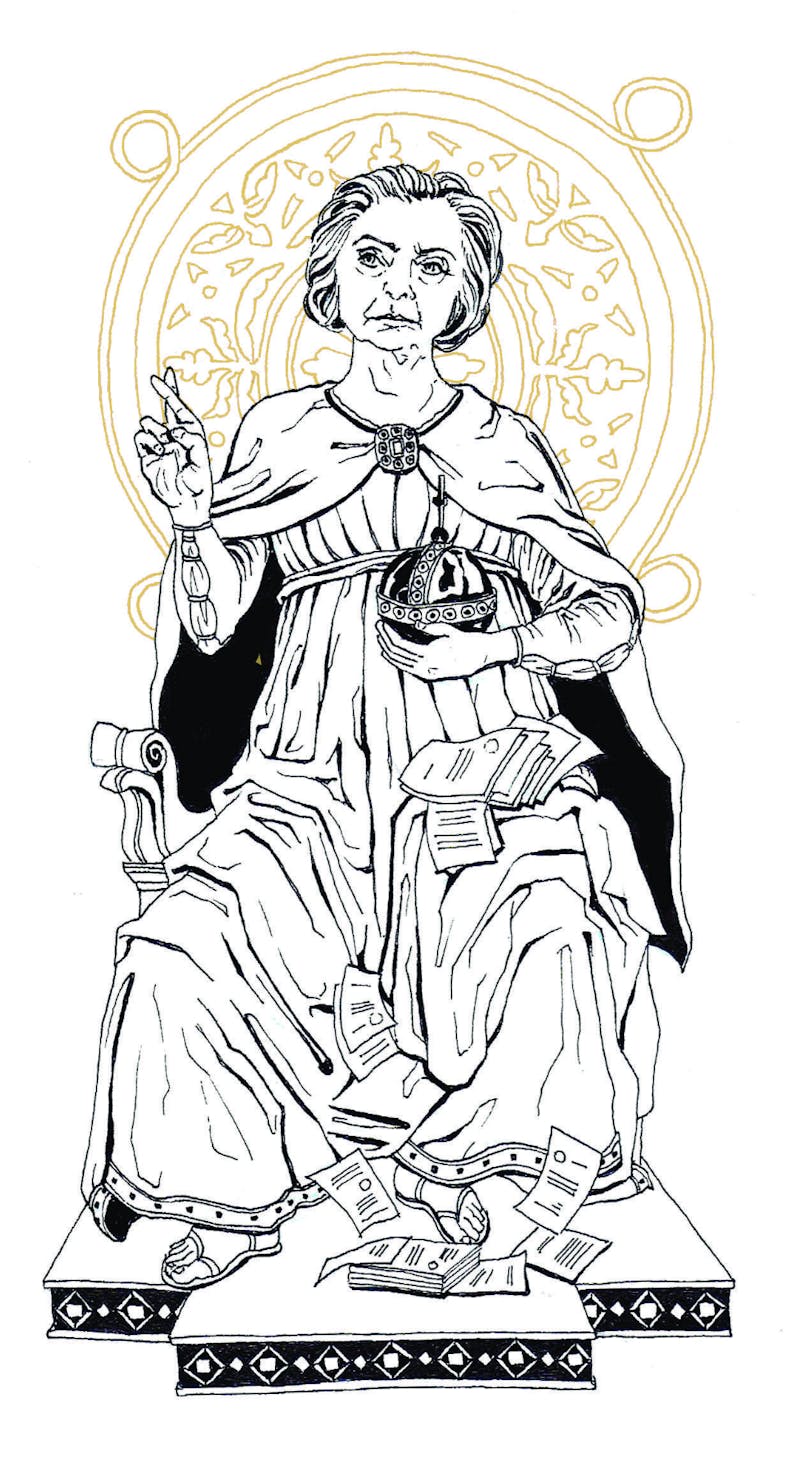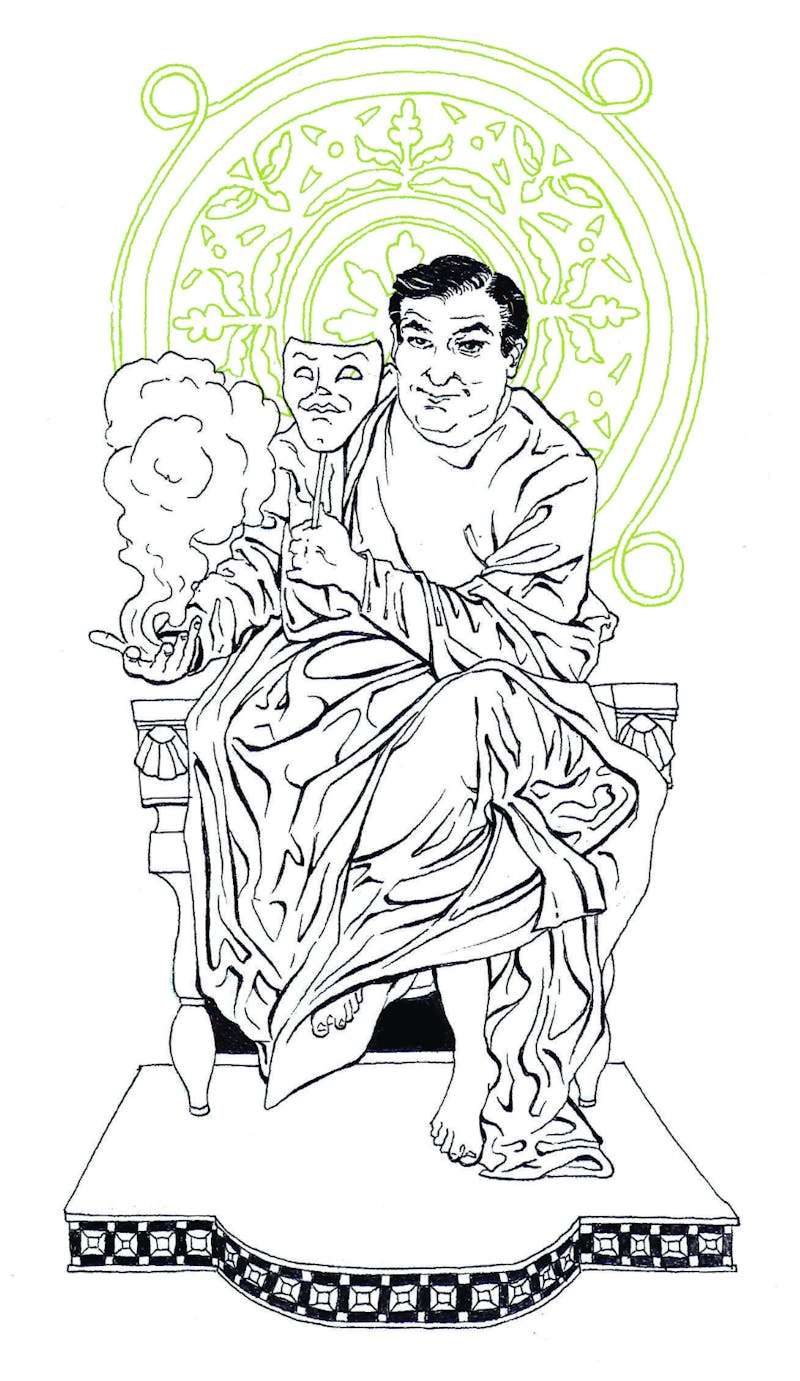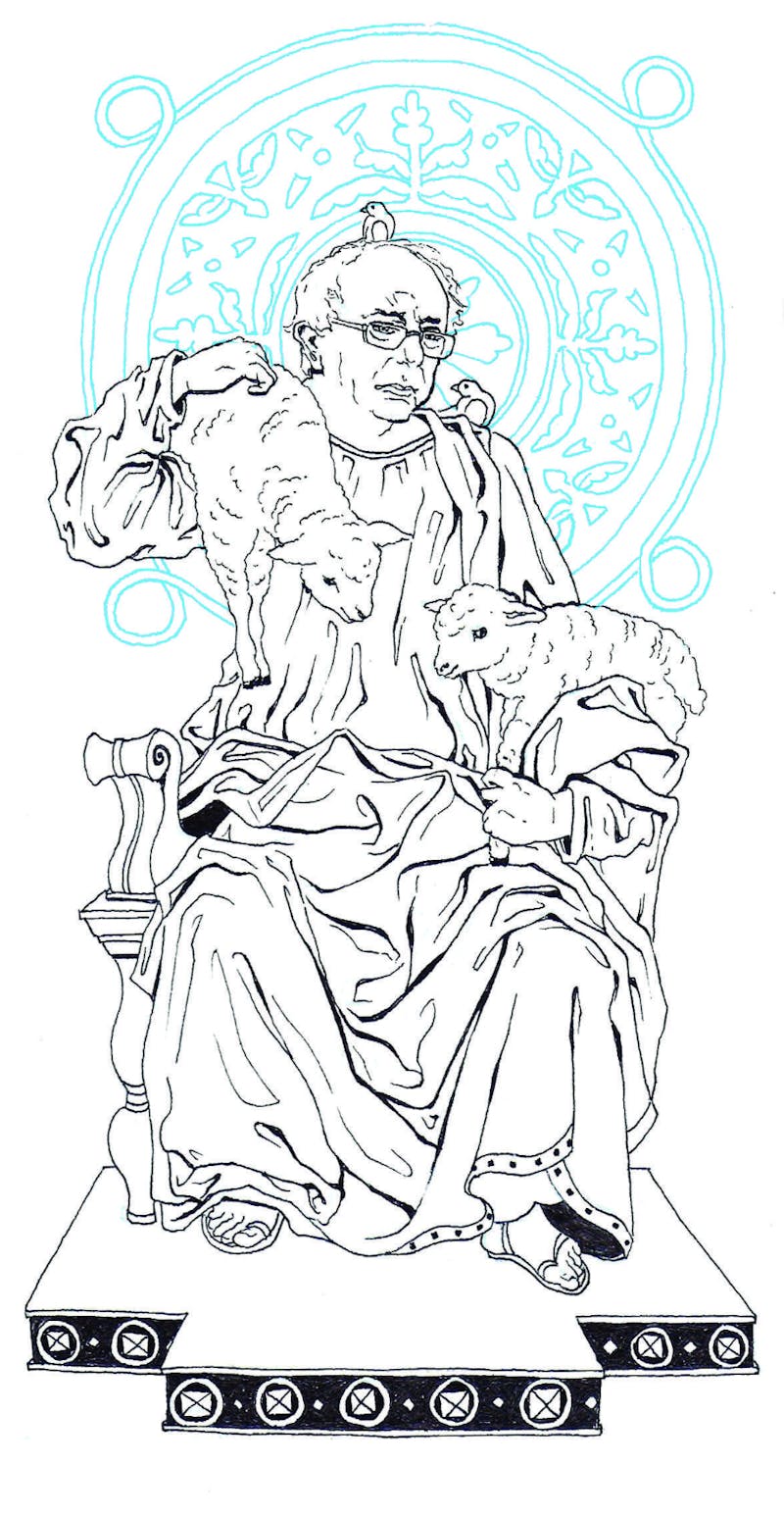Recently, I was comparing notes on the Republican candidates with a friend of mine who is one of the country’s leading philosophers on deception. We were arguing about who is more dangerous for the American electorate: I argued for Ted Cruz, who Donald Trump had successfully branded as “Lyin’ Ted” in a March 3 debate. The nickname had caught on among Cruz’s enemies; the super PAC New Day for America recently ran an ad in which Cruz’s nose grows Pinocchio-long as a voiceover numerates his many offenses. (“Lied about Ben Carson to steal a win in Iowa … lies about being the best for the GOP when polls show he can’t beat Hillary Clinton.”) My friend disagreed. “It’s like the distinction between the bullshitter and the liar,” he said. “Trump doesn’t care about the truth, which makes him more menacing than Cruz.”
He was referring to a distinction introduced by the American philosopher Harry Frankfurt in his best-selling 2005 book On Bullshit. The bullshitter, according to Frankfurt, has a “lack of connection to a concern with truth,” and an “indifference to how things really are.” It is for this reason we should fear the bullshitter more than other sorts of liars.

Trump has been a consummate bullshitter for years—it’s worked as well for him in business as it has in politics. For Trump, speech is about power, not truth; the one who controls the narrative commands the audience. What distinguishes Trump from other candidates is that, like any great bullshitter, he simply does not care about the truth, as senior editor Jeet Heer has previously noted in the New Republic. Aristotle, in Nicomachean Ethics, describes the truthful man as one who is truthful “where nothing is at stake, [and who] will still more be truthful where something is at stake.” Donald Trump, it is plain to see, is not a lover of truth—as his stakes grow, so does his bluster.
Witness his recent positioning and repositioning on the question of a woman’s right to have an abortion. Over the course of three days, the once pro-choice Trump claimed that abortion should be outlawed and that women who have had abortions should suffer “some sort of punishment.” After a public excoriation, he walked back his position, now claiming only abortion providers should face legal consequences, but insisting that his initial response, though hypothetical, was “excellent.” Trump says more or less whatever he thinks without checking the facts—and often apparently without knowing the facts—with the conviction, borne out by his success, that the facts don’t matter. “Listen to your gut,” Trump wrote in The Art of the Deal, “no matter how good something sounds on paper.”
But “a good politician, under democracy, is quite as unthinkable as an honest burglar,” wrote H.L. Mencken, and I realized that Trump was merely one of four styles of liar represented by the candidates presently running for the president of the United States: Donald the Bullshitter, Hillary the Noble Liar, Ted the Trickster, and Bernie the Blue-Eyed Liar.
In The Republic, Plato’s dialogue on the construction of the ideal state, Socrates considers the evil of lying. “What of the falsehood in words?” he considers. “When and for whom is it serviceable so as not to merit abhorrence? Will it not be against enemies?” Here Plato introduces his famous concept of the gennaion pseudos or “noble lie”—when a ruler must lie to the populace for the good of the republic.

For example, it’s fair to say that Clinton lied about the recent elections in Libya. “The Libyan people have voted twice in free and fair elections for the kind of leadership they want,” she said in a November 2015 speech, despite being well-aware those elections were rife with corruption. Similarly, she lied when she said at a November debate that “wages adjusted for inflation haven’t risen since the turn of the last century.” In fact they have risen, albeit very modestly. But in both cases, the kind of lie Clinton is telling is motivated by her perception of the needs of the American people. In the first case, she is deceptively overpromoting the progress of free and fair elections in the Middle East, with the hope of inspiring less violent rhetoric about American concerns in the area. In the second, slightly less noble lie, she is calling our attention to the need for substantial wage increases for the working class.
A noble lie is not so much the lie of realpolitik as it is the lie of real government. We must suppose that Clinton—as First Lady, as Senator, and as Secretary of State—has told, and had to tell, innumerable lies, as one of the people running the country. Deception is a well-established tool of successful statecraft. The crucial distinction between the Noble Liar and other sorts is the motivation for deception: The lie may happen to serve the political interest of the Noble Liar, but it is not told for that reason. The Noble Liar lies with the intention of benefiting those to whom she lies. Whether, when, and how the Noble Liar is in a position to assess the good of the people to whom she or he lies is another question entirely.
Ted Cruz manages to parse his falsehoods with the precision of a master debater and attorney. Cruz is the Trickster, the liar whose deceptions are designed entirely to serve his political interests. In applauding the tactics of the notorious Cesare Borgia, the model for The Prince, Machiavelli described the key to the Trickster’s success. “One who deceives,” Machiavelli recommends, “will always find those who allow themselves to be deceived.” When Cruz is confronted with a lie, it becomes very difficult to determine whether he is misstating a fact or his audience is missing a nuance. During a debate in Iowa, moderator Megyn Kelly told Cruz he’d proposed an immigration amendment that would have allowed for the legalization, but not citizenship, of illegal aliens. Cruz truthfully replied that his amendment “didn’t say a word about legalization.” What Cruz didn’t mention to Kelly was that he had himself told the Judiciary Committee his amendment would have granted legal status to illegal aliens. Cruz always seems to know the truth of the matter so well that he can find a way to deploy subtle facts to his own deceptive purposes.

In another tricky technique of master deceivers, Cruz changes the subject from the truth about his own lies to the truth about someone else’s lies. I witnessed this myself at a small church in Iowa when Cruz was confronted with his now notorious and straightforwardly deceptive “Voter Report Cards,” which appeared to “grade” the recipient and his or her neighbors with a voting turnout “score.” Cruz did not dispute any of the facts about the report cards; rather, he shifted gears and pointed out that his opponents had sent out similar report cards in both past and present caucuses. When another doubter pressed him on his refusal to subsidize corn farmers, he went into such detail about the complexities of ethanol law that he even had me convinced that less governmental support for the corn industry would make Iowa farmers rich.
At last we come to Bernie Sanders. How could he possibly be included on this list? Sanders is the candidate of red-faced moral indignation, with a blustering, bulgy-eyed intolerance for hypocrisy. But there’s a fascinating style of lying that is practiced best by those who seem most sincere—and especially by sincere politicians. Friedrich Nietzsche identified it in his 1878 book Human, All Too Human:
In the actual act of deception, with all
its preparations, its enthralling in voice,
expression, and gesture, in the midst
of the scenery designed to give it effect,
they are overcome by belief in themselves. …
Self-deception has to exist if a grand effect
is to be produced.
When Sanders declares that banking reform “ain’t complicated” (even though it’s very, very complicated) or that Wall Street’s business model is “fraud and greed” (even though Wall Street is at the bedrock of the American economy), we don’t doubt he believes what he’s saying. Sanders believes in his policies; he has convinced himself we can have universal health care and free tuition at public colleges and universities, and that the American people will embrace democratic socialism. Sanders tells us what we want to hear, not because he thinks it will get him elected, but because he has already sold himself on what he believes.

In 1887’s On the Genealogy of Morals, Nietzsche called this “blue-eyed lying”—a phrase directed at the German Empire’s Aryan, anti-Semitic politicians, whom he despised. “Our ‘good’ men do not lie,” he wrote. “The real lie, the genuine, determined, ‘honest’ lie … would prove too tough and strong an article for them … it would be asking them ... to learn to distinguish between ‘true’ and ‘false’ in their own selves.” Sanders is a virtuous liar—his heart is in the right place—but what makes him a liar is that he lets his heart persuade him of beliefs his head knows to be false.
What do all of our liars-who-would-be-president have in common? Two of them, Clinton and Cruz, are fairly traditional political liars, with Cruz taking the lead as the truly Machiavellian. Sanders and Trump are not so much straightforward liars as candidates with personalities that seem perversely truth-averse, though Trump clearly has the lead in truthiness.
In a contest between the Noble Liar (Clinton) and the Trickster (Cruz), I suspect the Trickster may take the day: He simply has more techniques at his disposal for manipulating the populace. The Noble Liar can be tripped up by the truth, but the Trickster can always twist it into a misleading form that will work to his advantage. The danger for the Trickster is that he lies so much that eventually he is flagrantly exposed as a liar, which is politically perilous.
When the Noble Liar (Clinton) faces the Bullshitter (Trump), the Noble Liar comes out ahead because she can use the truth against the Bullshitter. His ignorance in the face of facts will eventually be exposed to his shame because, at the end of the day, the average American has a good nose for bullshit.
If the Blue-Eyed Liar (Sanders) should face the Trickster (Cruz), watch out: The Blue-Eyed Liar depends on an ignorance of the truth for the maintenance of his sincerity, and the Trickster is skilled at deploying truth as a weapon whenever necessary. All the false beliefs of the Blue-Eyed Liar will be exposed by the Trickster, while the lies of the Trickster are not part of the rhetoric of the Blue-Eyed Liar.
But the most entertaining contest by far would be between the Bullshitter (Trump) and the Blue-Eyed Liar (Sanders). Rhetoric, passion, and sophistry would burst forth in a contest the likes of which we’ve only seen in The World Series of Comedy, or perhaps an episode of The Apprentice. I’d like to believe the Blue-Eyed Liar’s naïve optimism would trump the Bullshitter’s feckless fearmongering. But that may be a blue-eyed lie of my own.